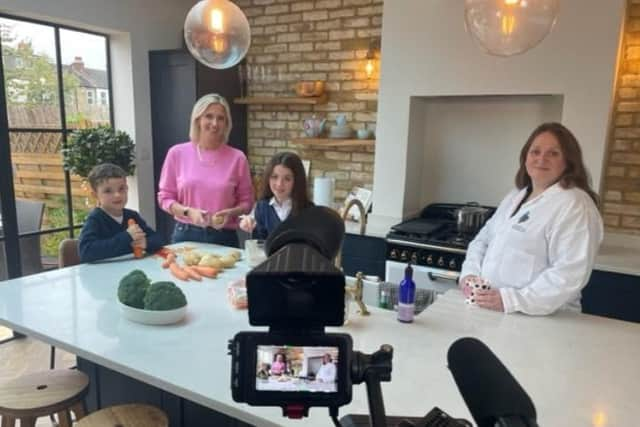One roast dinner or similar meal everyday the same as eating two plastic bags each year, University of Portsmouth and Good Morning Britain research claims
and live on Freeview channel 276
The University of Portsmouth in partnership with Good Morning Britain (GMB), has revealed that enjoying the traditional Sunday dinner can lead to 230,000 harmful microplastics - plastics that are smaller than 5mm in size - being swallowed. GMB reporter Michelle Morrison made two separate roast dinners at home with the same ingredients - chicken, potatoes, carrots, broccoli and Yorkshire pudding. However, one meal was made with ingredients that had all been bought wrapped in plastic versus the second meal, for which most of the ingredients had been purchased without any plastic packaging at all.
SEE ALSO: Man in court over election fraud
The roast made from ingredients wrapped in plastic contained seven times more microplastics than the non plastic-wrapped one, showing that plastic packaging is a major route for plastics getting into our bodies. In addition, the non-packaged items cost 37 per cent less than those bought wrapped.


Advertisement
Hide AdAdvertisement
Hide AdDr Fay Couceiro, reader in environmental pollution at the University of Portsmouth, tested both roast dinners and said: ‘From the results it would appear that the majority of microplastics in our food come from the plastic packaging it is wrapped in. However, there are other ways that plastic can enter the food chain. It could be getting into the vegetables through the soil or into our meat through grazing. Air has lots of microplastics in it too, so they could be falling on top of the food and finally it could be from the cooking utensils used when preparing a meal.’
Dr Couceiro continued: ‘Usually food samples are analysed for microplastics in their raw state under laboratory conditions. This allows us to understand how much plastic is inside a particular type of food. This study differs because we chose to look at what was actually on your plate after the food had been cooked. Instead of a sterile laboratory, the food was cooked in a normal kitchen, so it is likely the microplastics will come from a combination of within the food, the packaging, cooking utensils and the air.’
Ms Morrison added: ‘Previously there has been very little research into the amount of microplastics contained within an entire meal. Our new investigation has clearly found that we eat far less microplastics when we reduce the amount of packaging we buy.
‘What we now need to know is, are these microplastics harmless or, like many believe, are they actually tiny plastic timebombs?’
Advertisement
Hide AdAdvertisement
Hide AdThe University of Portsmouth is committed to tackling global plastics problems through Revolution Plastics. Professor Steve Fletcher, director of the department, said: ‘This research highlights the growing need to be aware of the hidden plastics too. Now we have found the scale of the problem, we need to understand how it might be impacting on human health.’
Alberto Costa MP, chair of the All-Party Parliamentary Group on microplastics said: ‘Plastic can enter our bodies through the air we breathe and through our food as highlighted in this investigation. We don’t yet know the effect this has on our health, but I would very much welcome more research and investigation into this so we can understand if there are any impacts.’